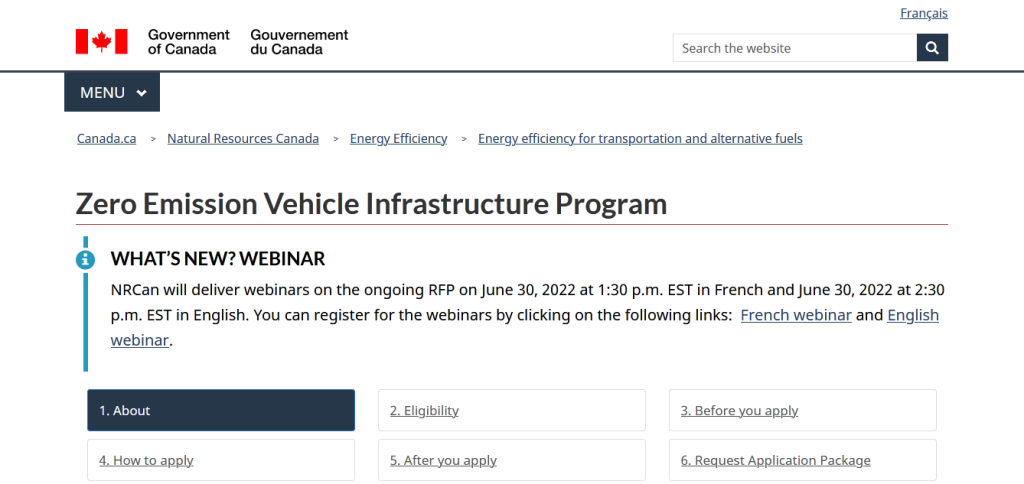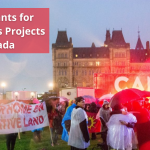Transportation accounts for approximately 25% of Canada’s greenhouse gas emissions (GHG), of which almost half comes from passenger cars and light trucks. The Government of Canada is steadfast in its conviction that the electrification of Canada’s light-duty vehicles and a shift to cleaner fuels are key to the decarbonization of our transportation sector. In fact, Canada’s strengthened climate plan, A Healthy Environment and A Healthy Economy, highlighted that building a stronger, cleaner transportation system as Canada recovers from the pandemic is an investment that will pay off — delivering economic and environmental benefits for decades to come.
To accelerate Canada’s prior aim of 100% sales by 2040, the Canadian government has set a required objective for all new light-duty automobiles and passenger trucks to be zero-emission by 2035. Reduced transportation emissions are compatible with the global shift toward zero-emission vehicles and are essential to meeting the government’s more aggressive climate change targets. Although the Canadian government has already committed over $1 billion to promote the adoption of more zero-emission vehicles, it will continue to pursue a mix of investments and legislation to aid Canadians and businesses in this transition.
By making more localized charging and hydrogen refuelling options available where Canadians live, work, and play, the $680 million Zero Emission Vehicle Infrastructure Program (ZEVIP), which will end in 2027, aims to address one of the major barriers to ZEV adoption in Canada: the lack of charging and refuelling stations.
These funds will be distributed via cost-sharing contribution agreements for qualified projects that will aid in supplying the rising demand for refuelling and charging.
What Expenses Are Eligible?
The following are examples of eligible expenses for a project that has been approved under the programme that must be directly related to and required for the project’s implementation and conduct:
- Pay and benefits; Expert services (such as distribution, printing, logistics, and data collection in marketing);
- reasonable travel expenses, including lodging, meals, and transportation;
- capital costs, such as for IT and other infrastructure or equipment;
- Rent or lease expenses;
- fees for licences and permits;
- Environmental assessment costs; GST, PST, and HST, net of any tax credits to which the receiver is eligible; and
- The maximum amount of NRCan funding allowed for overhead costs that are directly relevant to the project is 15% of the total amount of Eligible Expenditures.
Ineligible Expenditures
The following expenses are not eligible for reimbursement under this programme:
Costs incurred outside of the Eligible Expenditure Period; in-kind; land costs; legal costs; ongoing operating costs.
How to Apply?
The programme appreciates electronic submissions; therefore, please send them to
The applicant must provide a finished application form (containing the Word and Excel documents). The attestation page needs to be dated, signed by an official with the appropriate authority and scanned before being sent as a PDF. The application must be accompanied by additional supporting material, saved in Word, Excel, or PDF format.
Natural Resources Canada accepts email attachments up to 10MB in size. The applicant may send their files in a series of emails with the same subject line if the submission exceeds the limit. Natural Resources Canada is not liable for the safety of the files during transfer or the denial of emails that exceed the size restriction.
What is the Process of Selection?
Each project proposal will be checked for accuracy and measured against certain standards. Project proposals won’t be considered further if they don’t meet all the requirements.
The merit criteria will subsequently be used to evaluate and rate project proposals that satisfy the mandatory requirements. Based on this rating and regional distribution, NRCan will next announce the final funding decisions. Letters of regret will be sent for unsuccessful project applications, while letters of conditional approval will be sent for successful project proposals (LOCA).
When deciding whether to enter into a contribution agreement with a project proponent, NRCan will consider the results of the due diligence procedure.
The proponent will be invited to negotiate a contribution agreement if a project proposal is accepted and the results of the due diligence examination are deemed satisfactory. The results of the diligence evaluation may indicate risk mitigation tactics to be incorporated into the contribution agreement (for example, monthly progress reports or percentage of risk holdback). The risk level assessed may also define the monitoring techniques used during the project’s execution. In this situation, the programme would give the proponent written notice.
Application Deadline: August 11, 2022
Contact
Contact Name: Government of Canada
E-mail Address: [email protected]







Leave a Reply